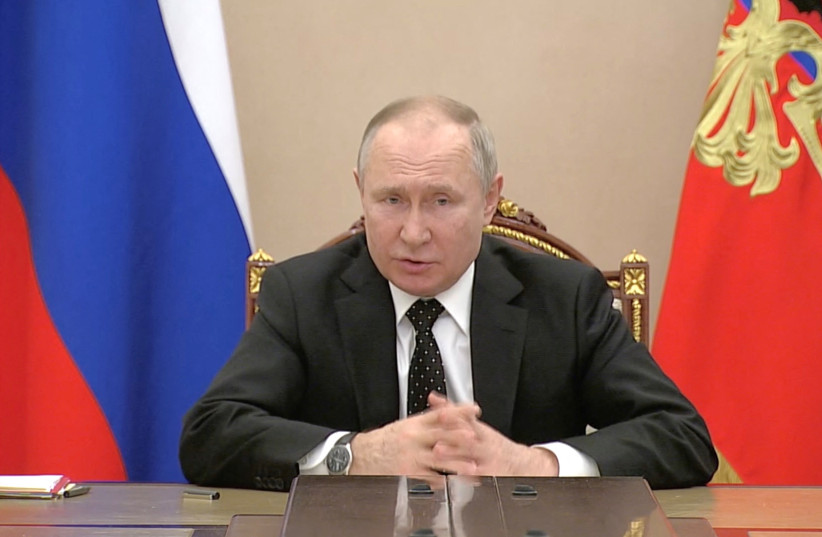The crisis unfolding in Ukraine has struck a painful chord for many Jews, myself included. It’s been more than eighty years, but we are still haunted by the cold indifference of Europe in the 1930s and 1940s that led to our massacre. The photos and videos emerging from Ukraine speak to our ingrained fears. In the broken families and streams of terrified refugees, we see our grandparents in the years before the full brutality of the Nazis was known.
We remind ourselves that this isn’t 1940. For one, we have Israel, which since its inception has served as sentry and a safe harbor for Jews in peril all over the world. Even so, when Putin speaks of de-Nazifying Ukraine, a country with a democratically elected Jewish president, alarm bells ring. History has taught us time and again to know when we are in the crosshairs of an authoritarian regime.
This is not an ambiguous war. Ukraine is a sovereign and peaceful state that did nothing to provoke aggression. Putin is a dictator driven by vanity, trying to extend his sphere of influence and reclaim some perceived lost glory for his nation.
There should be no question as to which side the Western world must support. And yet, some in the West believe that the conflict between Russia and Ukraine is a faraway problem that doesn’t concern them. They cite the cost of action, without weighing the greater cost of inaction.
They fail to understand that tyrants have insatiable appetites. China is watching. Iran is watching. Authoritarian regimes are patient and they are persistent. In Russia’s unmatched belligerence, they see their own ambitions can be realized.

After Russia breached Ukraine’s borders, we saw Western resolve grow. We gathered in capitals to hold up signs, tweeted up a storm, and lit up our tallest buildings in blue and yellow. Governments in Europe closed their airspaces and moved to seize the yachts and mega-mansions of Russian oligarchs.
The United Nations, in an almost theatrical act, convened the Security Council to vote on a resolution denouncing Russia’s invasion of Ukraine, which Russia predictably vetoed. Global financial bodies are considering mechanisms to freeze Russian finances, and have even imposed some measures, but remain concerned that further action could have harmful spillover effects for Europe and its allies.
These acts may feel grand until you consider that they have not stopped Russian jets from violating Ukraine’s skies or its tanks and troops from further encroaching on the capital. We need to understand that in a war between authoritarian and democratic forces, success can only be measured in results, not effort.
Ukrainians have shown astounding courage, beginning with President Volodymyr Zelensky. He has remained in Kyiv, rebuffing offers to shuttle him to freedom and instead, demanding ammunition. His determination to stand his ground has become a rallying cry. The Ukrainian people are fighting fiercely for their freedom. They are standing unarmed in front of Russian tanks, making homemade Molotov cocktails and patrolling their streets with whatever weapons they can find.
Ukraine has earned the admiration of millions of people around the world, but that is not enough. Western governments must settle for nothing less than a free Ukraine. That means sending more weapons and supporting Kyiv with robust intelligence. It means expelling Russia from all international, financial, athletic and cultural institutions, without exception. And it means freezing and seizing Russian finances. There should be no givebacks to warmongers.
Ukraine is reminding us that democracy makes costly demands. If we deny this truth, we will wake up in the not-too-distant future to find that we are less secure and less free. Our collective goal must be to isolate aggressors politically, economically, militarily, diplomatically and socially, until they understand that we do not yield to bullies.
The writer is co-founder and CEO of Boundless. Previously, she was director of speechwriting for the Permanent Mission of Israel to the United Nations. She can be found on Twitter @Aviva Klompas.
